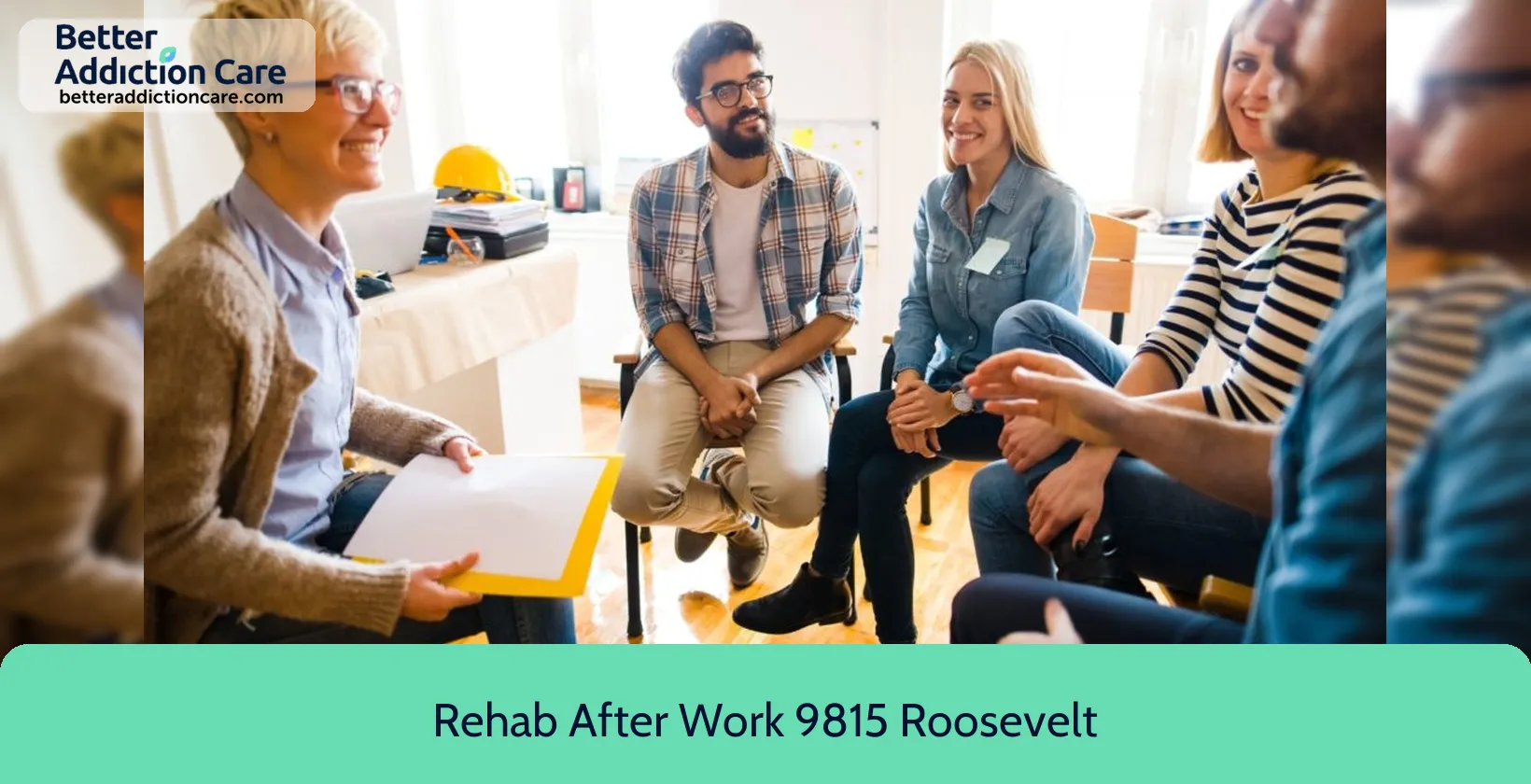Rehab After Work 9815 Roosevelt Blvd
Overview
Rehab After Work 9815 Roosevelt Blvd is an accredited substance abuse treatment center that provides outpatient detoxification, for men and women from 18+ years of age. As part of their special programs, Rehab After Work 9815 Roosevelt Blvd To help patients achieve sobriety, Rehab After Work 9815 Roosevelt Blvd provides intake assessments. Afterward, patients receive family counseling, group counseling, and creative arts therapy during treatment. Rehab After Work 9815 Roosevelt Blvd is located in Philadelphia, Pennsylvania, providing treatment for people in Philadelphia County, accepting private health insurance, cash or self-payment, and state-financed health insurance plan other than medicaid.
Rehab After Work 9815 Roosevelt Blvd at a Glance
Payment Options
- Private health insurance
- Cash or self-payment
- State-financed health insurance plan other than Medicaid
- Per session
Assessments
- Comprehensive mental health assessment
- Comprehensive substance use assessment
Age Groups
- Adults
- Children/adolescents
- Young adults
Operation
- Private for-profit organization
Highlights About Rehab After Work 9815 Roosevelt Blvd
6.62/10
With an overall rating of 6.62/10, this facility has following balanced range of services. Alcohol Rehabilitation: 8.00/10, Drug Rehab and Detox: 6.00/10, Insurance and Payments: 6.00/10, Treatment Options: 6.49/10.-
Alcohol Rehabilitation 8.00
-
Treatment Options 6.49
-
Drug Rehab and Detox 6.00
-
Insurance and Payments 6.00
Accreditations
Commission on Accreditation of Rehabilitation Facilities (CARF):

CARF accreditation is a prestigious recognition for organizations in rehabilitation and human services. It signifies that an organization meets rigorous quality standards and is committed to providing top-notch care. Achieving CARF accreditation involves a thorough evaluation process, including on-site surveys, to ensure excellence in programs and services. This accreditation boosts an organization's credibility, assures clients and funders of quality, and promotes ongoing improvement in the field of rehabilitation and human services.
Treatment At Rehab After Work 9815 Roosevelt Blvd
Treatment Conditions
- Mental health treatment
- Alcoholism
- Opioid Addiction
- Substance use treatment
- Co-occurring Disorders
Care Levels
- Intensive outpatient treatment
- Detoxification
- Outpatient
Treatment Modalities
- Family counseling
- Group counseling
- Creative Arts Therapy
- Marital/couples counseling
- Holistic Treatment

Additional Locations
Get Help Now
Common Questions About Rehab After Work 9815 Roosevelt Blvd
Contact Information
Other Facilities in Philadelphia

6.68

7.33

7.43

6.65

6.80

7.12

7.46

7.71
DISCLAIMER: The facility name, logo and brand are the property and registered trademarks of Merakey Parkside Recovery, and are being used for identification and informational purposes only. Use of these names, logos and brands shall not imply endorsement. BetterAddictionCare.com is not affiliated with or sponsored by Merakey Parkside Recovery.


